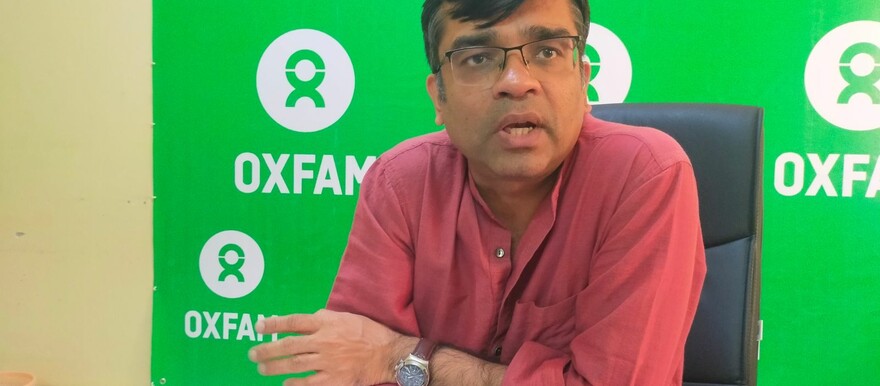The Executive Director for Oxfam International, an international charity organization, has called on the international community to focus on the humanitarian crises created by the ongoing war in Sudan that displaced hundreds of thousands of people.
Addressing reporters in Juba following a visit earlier in the week to assess the humanitarian situation of the refugees and returnees, Amitabh Behar said the international community should not forget the crisis in South Sudan as thousands of displaced persons from Sudan are living appalling humanitarian conditions.
“It is critical for the world not to forget the crisis in South Sudan, I think that is very important, given that the world is now full of conflicts sadly,” he said. “What is happening in Ukraine, what is happening in Gaza, a lot of attention is getting diverted, we are very keen that people understand that this is still a crisis and will probably become a bigger crisis.”
He said the displaced persons are living in an overcrowded transit camp with very limited access to humanitarian support.
“The number of returnees and refugees put together is so significant that the transit camp that the government has created along with all the partners cannot address their needs. What we are seeing at this juncture is people are finding it extremely difficult, they are fleeing from a more difficult situation that is why they are coming here but they are not able to get basic humanitarian access,” he emphasized. “The transit camp is just along the boundary because all the shelters have now been filled. They have just put one sheet and created their shelters and these hundreds of people. I would say it is challenging there.”
Behar said he met a woman living in a difficult situation because she has a bullet lodged in her hip and is looking for medical aid but she is sitting in the refugee camp.
The Oxfam chief said they are trying to meet the humanitarian needs of returnees and refugees in their capacity but are looking at building more sustainable solutions to help the people displaced by the Sudanese conflict.
“The approach we have is to try and fill the humanitarian gap from our perspective and our focus has been primarily on water and sanitation but we also try and work on rebuilding livelihoods and on our side we think there is a need to build a long term solution so it cannot just be humanitarian needs,” he said.




